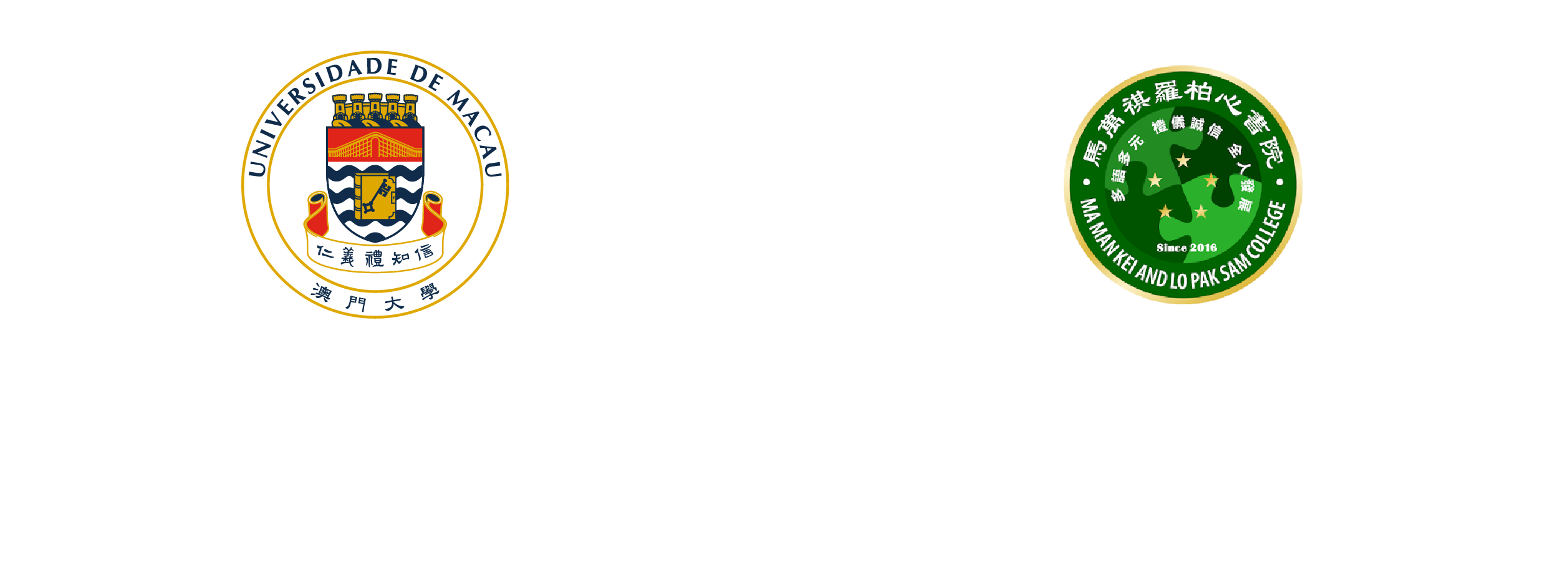The ancient melody of Durham University’s collegiate system, like the whispers of time, tells the story of the inheritance of knowledge and the accumulation of wisdom. In this academic fertile ground, the collegiate system is not only an educational framework but also an intertwining of culture and history. On November 18, 2024, Professor Zheng Binghan from Durham University in the UK delivered a fascinating lecture titled “Unveiling the Mystery of Durham University’s Collegiate System: A Case of University College” at Ma Man Kei and Lo Pak Sam College (MLC)’s Academy of Aesthetic Education, revealing the mysteries of the ancient institution’s collegiate system to the students and teachers.
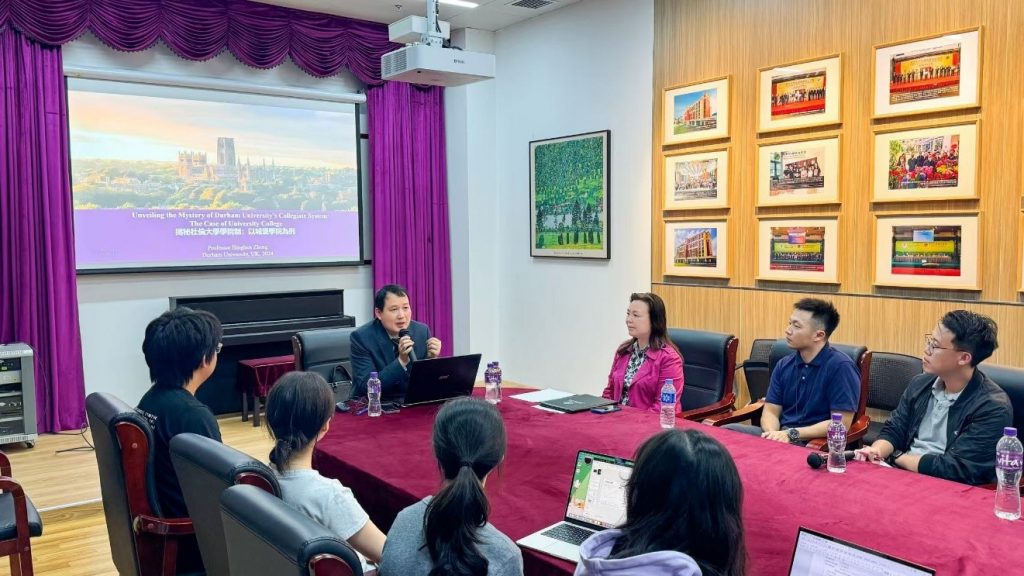
The host of this Grand Lecture Series, Professor Yang Liu, College Master of MLC, first introduced the guest speaker, Professor Zheng Binghan. Professor Zheng is a professor at the School of Modern Languages and Cultures at Durham University, a PhD supervisor in Translation Studies and Linguistics, and the Director of the Centre for Intercultural Studies. He holds several prestigious titles, including Honorary Fellow of the Chartered Institute of Linguists, member of UK Research and Innovation, Fellow of Churchill College, Cambridge, and Fellow of University (Castle) College, Durham. Professor Zheng’s research areas include translation process research, cognitive studies of interpreting and translation, and translation and cognitive neuroscience. He has published a series of research articles in leading journals in translation and linguistics.
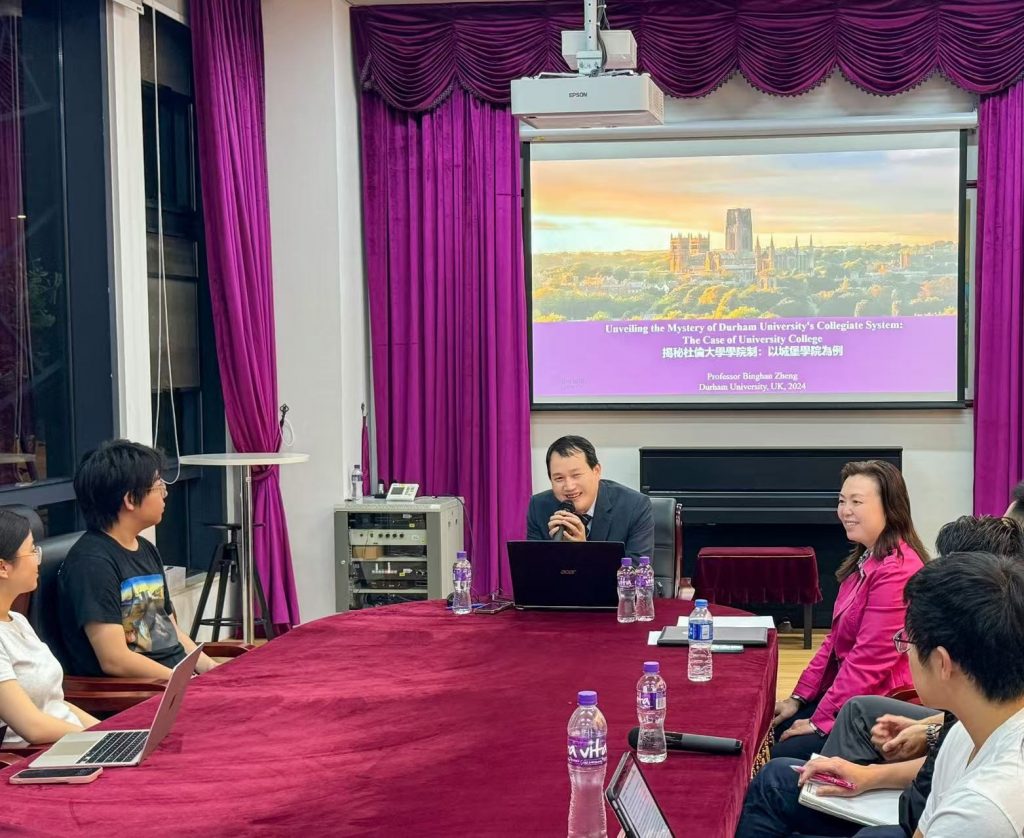
Professor Zheng first introduced the historical background of Durham’s collegiate system, which dates back to the Middle Ages. Oxford, Cambridge, and Durham are the only three universities in the UK that retain this tradition. He explained the collegiate system in detail, quoting alumnus Sir Harold Evans to further illustrate the importance of the collegiate system in daily life, emphasizing the collision of ideas and personal growth through exchanges across different disciplines and cultural backgrounds. Professor Zheng also delved into the unique cultures and characteristics of each of Durham University’s 17 colleges, explaining how they attract students with similar temperaments and endow them with distinctive traits. He particularly highlighted the nobility and elegance of Castle College, where he resides, and the excellence of other colleges like Collingwood College in sports and social life. Castle College’s distinctive style makes it a model in the world of collegiate education.
Castle College, as Durham’s oldest and founding college, is located at the heart of the World Heritage Site on the hilltop palace green. This castle has been inhabited since the 11th century, with about one-fifth of the students living in the ancient castle each year, experiencing the charm of this world cultural heritage.
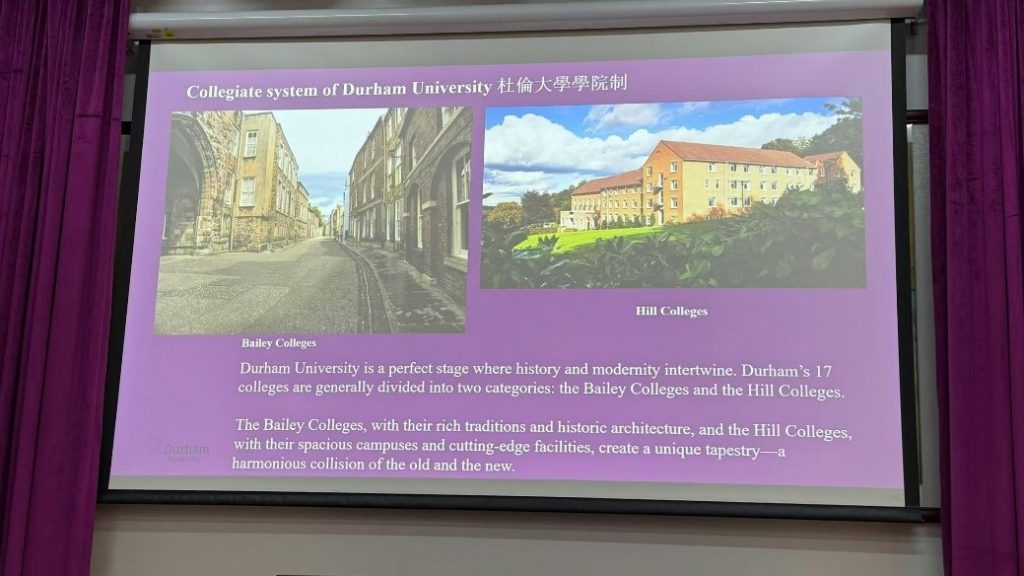
In terms of academic life, the college hosts activities such as the “10-minute PPT” night every Sunday, where students share their research findings, enhancing the academic atmosphere and honing their presentation and communication skills. Castle College is also known for its rich social activities, with the most famous being the formal dinners, considered the highest quality and most formal social events in Durham. Here, students can wear black gowns and experience formal dinners reminiscent of Hogwarts. These activities not only enhance students’ sense of belonging but also allow them to experience the unique collegiate culture that blends tradition and modernity. Castle College is also renowned for its diverse sports activities, with clubs for rowing, cricket, hockey, football, ultimate frisbee, billiards, and rugby. The rowing club, one of the oldest in Durham, attracts many students passionate about water sports. Additionally, the college actively participates in community service, encouraging students to give back to society through volunteer activities, fostering their sense of social responsibility and civic awareness.
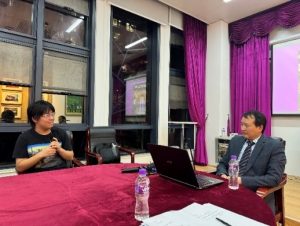

During the Q&A session, students eagerly asked questions, focusing mainly on the unique management and heritage of the colleges. Professor Zheng emphasized that each college should have its own characteristics. He expressed appreciation for the University of Macau’s collegiate system, which aims to cultivate seven competencies in students and praised the unique “aesthetic education” concept of MLC. College Master Yang agreed and introduced the distinctive features of MLC, mentioning the establishment of the Aesthetic Education Hall at the end of the spring semester of 2022. Since then, six unique “Grand Aesthetic” series activities have been held, including the Grand Beauty Forum, Grand Beauty Workshop, Grand Wonderland, Grand Beauty Melody, Grand Beauty Visuality, and Grand Beauty Literature, all well-received by students and teachers. The patriotic and philanthropic spirit of Mr. Ma Man Kei and Madame Lo Pak Sam and their family is the spirit of great love inherited by the college. The college has established a Love Country Love Macau Exhibition Hall and encourages students to actively participate in community service, passing on the spirit of great love from generation to generation.
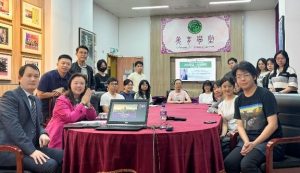

As the lecture drew to a close, Professor Yang presented Professor Zheng with a certificate of appreciation, and students and teachers took a group photo. Professor Zheng’s lecture not only ignited the enthusiasm of the attendees for the collegiate system but also deepened their understanding of the unique culture and traditions of Durham University’s collegiate system. This lecture allowed students to understand the characteristics of Castle College and also helped them deeply appreciate the spirit of great aesthetics and great love of MLC. As members of the college, they will strive to absorb the educational essence from different regions, making the development of the college more complete.
Written by: Bao Rong

